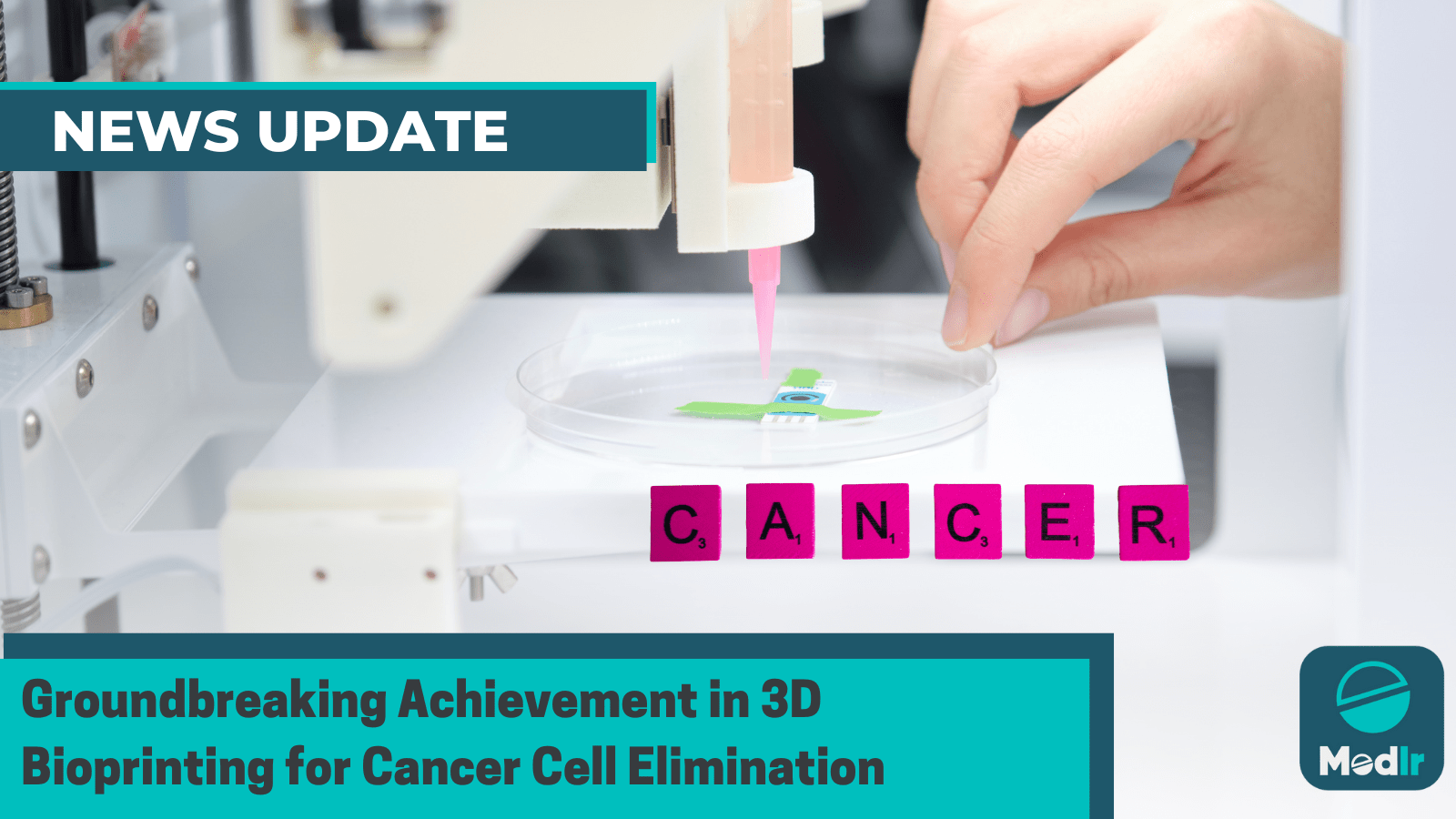Groundbreaking Achievement in 3D Bioprinting for Cancer Cell Elimination
Written by Shaveta Arora
Revolutionary 3D bioprinting technology harnesses immune cells to combat cancer effectively. A groundbreaking achievement in cancer treatment.

The Korea Research Institute of Bioscience and Biotechnology (KRIBB), in collaboration with the Korea Institute of Machinery and Materials (KIMM), and under the jurisdiction of the Ministry of Science and ICT, has achieved a groundbreaking milestone. They have successfully developed the world's first three-dimensional (3D) bioprinting technology that harnesses the potential of immune cells to eliminate cancer cells.
This cutting-edge 3D bioprinting technology uses natural killer cells (NK cells) as a revolutionary approach to cancer immunotherapy. The remarkable outcome of their joint research has been published in the prestigious journal Biomaterials Research (IF: 11.3), validating the significance and impact of their achievement.
The 3D bioprinting technology allows for the encapsulation of NK cells within the hydrogels, effectively preventing the loss of these cells and promoting their effective targeting of tumor cells. The hydrogel structure develops pores over time, releasing NK cells that retain their viability, thereby facilitating their immune functions.
Traditionally, NK cells have been used for immunotherapy, but their efficacy when administered through intravenous injection has proven inadequate in clinical trials involving solid tumors*. The main challenge lies in the NK cells' inability to maintain sufficient viability and effectively target solid tumors.
In contrast, the newly developed technology addresses this issue by enabling the injection of NK cells into the hydrogel, followed by 3D culture. This environment significantly enhances the viability and activity of NK cells, empowering them to effectively combat cancer tissues.
Principal Researcher Su A Park of KIMM was quoted as saying -
"This technology can help to significantly improve the functionality of NK cells that are used for cancer treatment. We expect to contribute to the treatment of cancer patients through this newly developed technology."
The Korea Institute of Machinery and Materials (KIMM) actively participated in this research as a non-profit government-funded research institute under the Ministry of Science and ICT. Since its establishment in 1976, KIMM has played a vital role in contributing to the nation's economic growth. Their efforts encompass research and development of key technologies in machinery and materials, conducting rigorous reliability test evaluations, and successfully commercializing the developed products and technologies.
Throughout this research, significant support was provided by two crucial projects. The first project, "Development of multiscale-vasculature-laden skin composite tissue for evaluation of implantable nano-bio-sensors," was sponsored by the Ministry of Science and ICT and the National Research Foundation of Korea.
The second project, "development of UnTACT systems for critical illnesses," was conducted by the Convergence Research Center of the National Research Council of Science and Technology. These projects played a vital role in facilitating and advancing the research's objectives and outcomes.